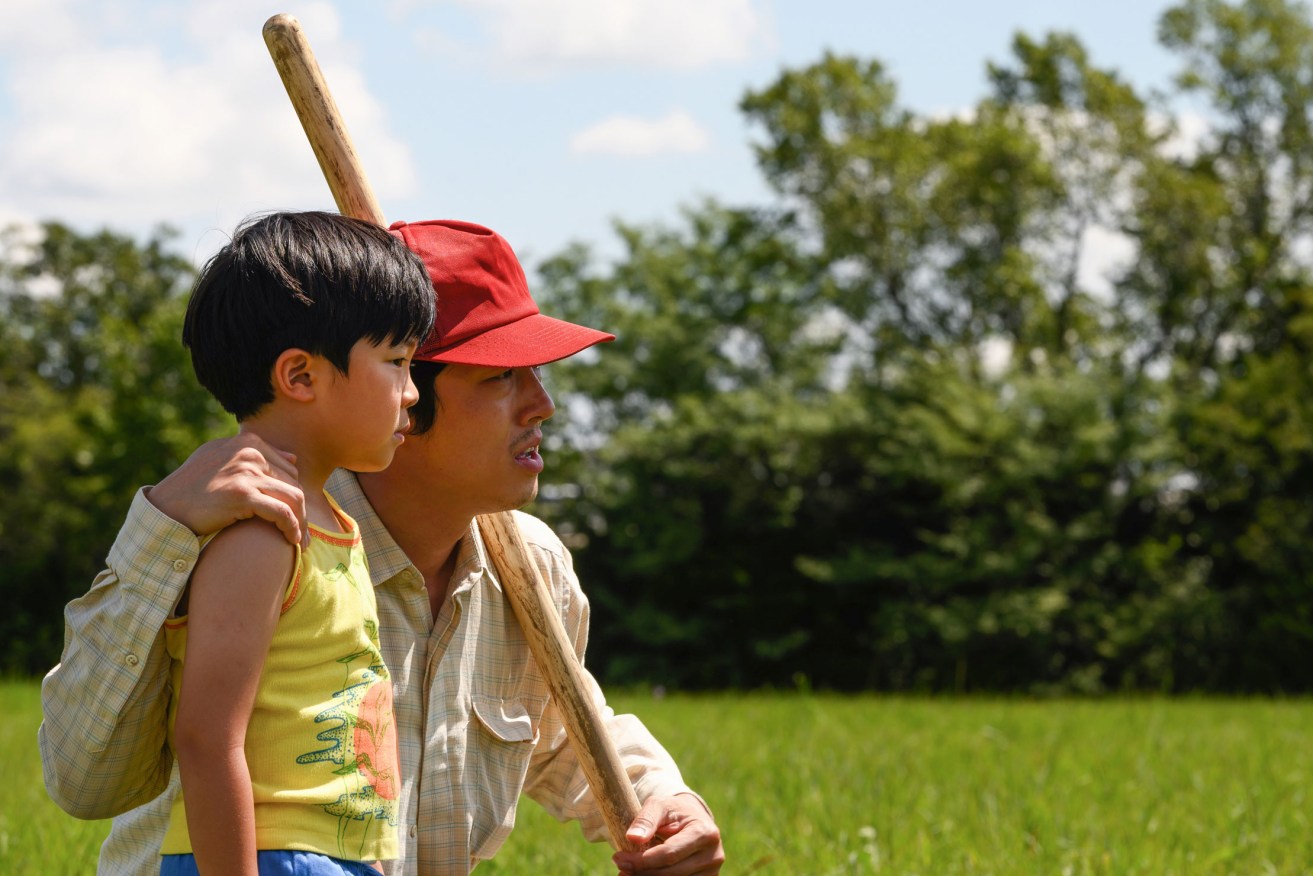Film review: Minari
Writer-director Lee Isaac Chung hits the sweet spot with this quietly charming coming-of-age film about a Korean family setting up home in 1980s Arkansas.


Minari, a heart-warming film à clef, based on Chung’s own childhood, is another genre-swerve in his eclectic cinematic career. His debut movie Munyurangabo, a huge hit at Cannes in 2007, was the tale of two boys from different ethnic backgrounds in the wake of the Rwandan genocide. His next film, Lucky Life, was inspired by the poetry of Gerald Stern. It was followed by the surreal, modern-day fable Abigail Harm, then the co-directed documentary I Have Seen My Last Born.
What remains constant along this genre-switching path is Chung’s expansive humanity. His characters are portrayed with a warmth and affection that overrides their inevitable flaws.
This is evident from the opening scenes of Minari, when the Yi family arrive at their new home, a trailer in rural Arkansas with 50ha of land. Jacob (Burning’s Steven Yeun) has purchased the land in order to fulfill his dream of growing and distributing Korean vegetables to the burgeoning immigrant market. His excitement and pride is evident as he strides around, extolling the virtues of the plot.
Seeing it for the first time, his wife Monica (Yeri Han) is not impressed. “This is not what you promised,” she insists. They are too far from the local community and too far from the hospital which they might need at any moment, given their young son David’s (Alan S Kim) health problems.
Monica becomes increasingly frustrated at the way Jacob continually puts the farm ahead of the family. However, the dynamic in the trailer-home changes with the arrival of Monica’s mother Soonja, a foul-mouthed, card-playing wearer of gentleman’s underwear, superbly portrayed by Yuh-Jung Youn (grande-dame of Korean cinema).
Like David, she’s a rebellious spirit, and the two initially clash. Soonja, with her Korean health drinks and lack of English, is the link to the family’s Korean past, while David, immersed in American culture, heralds their future. The tight bond that eventually forms between the two is a subtle metaphor for the slow marrying of cultures.
And this is where the film excels: subtle moments that speak volumes. The tiny crack in the windscreen of the family car as it drives towards their new property. The water running down Jacob’s face as Monica washes his hair. David and his sister Anne running after their departing grandmother and gently leading her back to the trailer. Nothing is hammered home with schmalzy script or orchestral crescendos; it’s just quietly embedded in the facial expressions, the action, the camera shots.
Panoramic scenes of the wide, green outdoors are a perfect foil for the tight-angled shots inside the brown and orange, 1980s trailer home, thanks to Australian director of photography Lachlan Milne (Netflix’s Stranger Things and Taika Waititi’s Hunt for the Wilderpeople). Milne’s use of natural light gives the film a clarity and honesty that compliments Chung’s intent to realistically portray the immigrant experience.
In any film à clef, there’s potential for the warm glow of nostalgia to turn a little icky, but Chung keeps a tight rein on the action, never letting it veer into cloying sentimentality. Many of the film’s most heart-wrenching scenes are filmed in close-up and conveyed through little more than eye-movement. Yeun and Han are consummate masters at this, but Noel Kate Cho (who plays Anne) is also impressive in her ability to demonstrate teenage disdain or deep-felt concern through facial expression.
Kim gives an equally astonishing performance as the seven-year-old David, bringing both a charming, cheeky boyishness and a sense of thoughtful curiosity to the role. And Will Patton is utterly delightful as Jacob’s helpmate, Paul. His religious zeal and speaking in tongues could have been disturbing, but in Patton’s capable hands it’s all just part of his joyful and kindly personality.
Minari is a story about one family, but it’s also a story about all families: the role the past plays in our relationships, the need to work together, the importance of our genetic roots — all the ties that bind.
Minari opens in cinemas on February 18, with advance screenings from this weekend.




